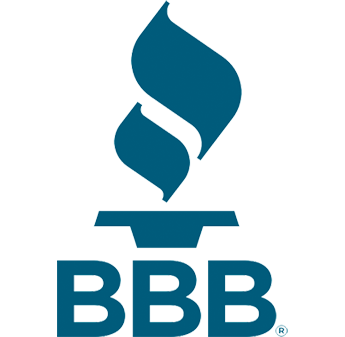
Compare Illinois Electricity Rates
Enter your zip code to compare Illinois electricity rates and electric companies.
EnergyBot rates are updated in real time. Partners don’t influence our content, but we may mention their plans. How we make money.
Illinois Electricity Prices
Lowest electricity rates in Illinois today:
Average Illinois Electric Rates
This section highlights the average Illinois electricity rates for residential and commercial customers.
Last updated July 2025
- The average Illinois commercial electricity rate is 12.78 ¢/kWh (2% lower than the national average).
- The average Illinois residential electricity rate is 18.32 ¢/kWh (4% higher than the national average).
Source: Illinois energy data from The U.S. Energy Information Administration (EIA)
Illinois Electric Rates
How much is electricity in Illinois? Rates updated daily
Since the deregulation of electricity in Illinois in 1997, consumers have the power to choose their electricity provider and plan type. For Illinois residents and businesses, the deregulated market allows you to compare energy plans from top energy suppliers and shop for the best rate. With EnergyBot, you can find the perfect plan for you in 5 minutes or less.

Energy Deregulation in Illinois
In 1995 Larry D. Habb, president and chief executive officer of Illinois Power Co., the state’s second largest power company, began the push for energy deregulation as a method of saving energy and money. Two years later, Illinois lawmakers passed the Illinois Electric Service Customer Choice and Rate Relief Law of 1997 that kicked off deregulation in Illinois for commercial and residential customers.
How to Find or Switch Electricity Providers in Illinois
Switching electricity providers in Illinois is a super simple process, thanks to the deregulated energy market. First, compare available electricity plans to find one that suits your usage and budget. Once you've selected a plan, your new provider will handle the switch with no disruption to your service so that you can start saving. You'll continue to receive electricity through your local utility company, like ComEd or Ameren, but your new provider will be responsible for setting your rate.
Remember to review your current contract for any cancellation fees before making the switch, as well as compare your current energy bill with the average electric bill for your new plan.
What's the Difference Between an Energy Provider and Utility?
Utilities are the entities in charge of the operation and maintenance of the energy infrastructure, like wires and towers. The local utilities in Illinois include Ameren, Cedar Point Light and Power, Central Illinois Light Company, Commonwealth Edison Company, Electric Energy, Illinois Power Company, and Union Electric Company. Your local utility provider is determined based on your zip code and each utility is responsible for transporting electricity from the generators to residential homes and businesses in their specific region of Illinois. Illinois energy customers can find a full list of Certified Electric Illinois utilities here.
Energy providers in Illinois, like Direct Energy, Entrust, and Public Power are the competitive energy retailers. Each Illinois electricity provider buys energy from the wholesale market (the generators) and then re-sells it to consumers (homeowners, renters, and businesses).
In most cases, the consumer, the homeowner, renter, or business, signs a contract with an energy provider for a specific energy plan. The basic energy plan details the rate class, the energy rate per kWh, the contract term length (6, 12, 24, 36 months), and other contract terms like cancellation fee policy.
Types of Electricity Plans in Illinois
Illinois residents and businesses can choose from several types of electricity plans, each catering to different needs. The most common options are fixed-rate plans, where the price per kWh remains the same throughout the contract term, and variable-rate plans, where rates can fluctuate based on market conditions. Additionally, there are time-of-use plans that offer lower rates during off-peak hours and green energy plans that source electricity from renewable resources. Understanding the differences and comparing electricity rates can help you select a plan that best fits your energy usage patterns and financial goals.
Illinois is home to a diverse economy, with over 1.2 million businesses operating across a wide range of industries. Small businesses play a significant role, comprising 98.2% of all businesses in the state. These businesses collectively employ approximately 2.4 million people, representing nearly half (46.4%) of the state’s workforce.
Small enterprises, particularly those with 100 or fewer employees, dominate the employment landscape, driving job creation and economic growth in Illinois. Key industries include Health Care and Social Assistance, Accommodation and Food Services, Manufacturing, and Professional, Scientific, and Technical Services, reflecting the state's robust and varied economic foundation. These small businesses play a large roll in electricity consumption and contribute in large part to electricity rates with their demand.
Understanding Price to Compare in Illinois
The "Price to Compare" in Illinois is a key metric that helps consumers evaluate whether switching electricity providers can save them money. This rate is the cost per kilowatt-hour (kWh) that your local utility company, such as ComEd or Ameren Illinois, charges for electricity supply. When comparing offers from other electricity providers, the Price to Compare serves as a benchmark. If a provider offers a rate lower than the Price to Compare, you could potentially reduce your electricity bills by making the switch.
Keep in mind that the Price to Compare can fluctuate, so it’s important to regularly check it when evaluating your options. Make sure that you're considering the average electricity rates when comparing electricity costs for your current plan to a potential new one. A wide variety of factors, including electricity supply and demand, can impact the cheapest electricity rates.
Moving to Illinois?
If you're moving to Illinois, setting up your electricity service is an essential step. In most cases, you’ll need to establish service with the local utility company in your area, such as ComEd or Ameren, for electricity delivery. After that, you can shop around for an electricity provider that offers the best electricity rates and plans. With Illinois' deregulated market, you have the flexibility to choose a provider that meets your energy needs and budget, so be sure to compare rates. Don’t forget to check if your new home or business qualifies for special plans or discounts.
Illinois Electric Rates FAQs
Can you choose your electric company in Illinois?
Yes, Illinois residents can choose their electric supplier thanks to energy deregulation. While utility companies like ComEd and Ameren Illinois manage the delivery of electricity, consumers can select from various electricity suppliers to find the best rates and plans for their needs.
Who is the cheapest electricity supplier in Illinois?
The cheapest electricity supplier in Illinois varies depending on your location, usage, and plan preferences. To find the best rates, compare current offers from suppliers like Constellation, Direct Energy, and Reliant Energy, among others, using a comparison tool.
What is the price per kWh in Illinois?
The price per kWh in Illinois typically ranges from 7 to 12 cents, depending on your electricity supplier and plan. However, rates fluctuate based on market conditions, your location, and the type of plan you choose (fixed or variable).
What is the average kWh per month in Illinois?
The average household in Illinois uses around 700 to 900 kWh per month. This can vary based on factors like home size, energy efficiency, and weather conditions.
Why are electric rates so high in Illinois?
Electric rates in Illinois can be high due to a combination of factors, including market conditions, energy supply costs, transmission fees, and state regulations. Additionally, high demand during extreme weather can drive up prices.
Are Illinois electric rates going up?
Illinois electric rates have seen increases recently due to rising energy costs, regulatory changes, and market demand. Monitoring current rates and locking in a fixed-rate plan can help protect against future rate hikes.
See today’s electricity rates for cities in Illinois
Energy Saving Blog Posts
102 Ways to Save Electricity
From turning off lights to checking for air leaks, there are many ways to save electricity — and money.

Essential Guide to Home Energy Audit for Cost Savings and Efficiency
Lower your energy bills and boost efficiency with a home energy audit. Learn how to identify energy waste and make smart upgrades.

Home Energy Assistance: Benefits and Financial Support
Recipients of HEAP benefits receive a one-time direct payment to their electricity company or utility provider, alleviating the pressure from energy bills on your budget.


 A+
A+

 4.8
4.8





